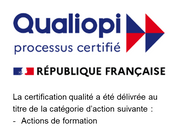ABOUT
NetExpat is the leading global provider for Talent Management and Intercultural Leadership Solutions, and Partner Assistance to 400+ corporate clients. We provide assessment, training, and coaching to expatriates, business travellers and non-mobile employees working on international teams. We support relocating partners with career and integration support. NetExpat was founded over 25 years ago and currently has offices in over 100 countries worldwide. Our growing team consists of over 500 experts, and we are proudly ISO 9001 certified.
Blog

This blog post offers a glimpse into the exclusive content available to members of the NetExpat Community —designed specifically for the partners and spouses of transferees. From curated resources to peer-driven insights, this sample reflects the kind of meaningful support that helps partners/spouses feel seen, connected, and empowered.

Artificial intelligence (AI) is revolutionizing talent management and mobility, making some administrative processes faster and more efficient. As businesses look to AI-driven tools to streamline everything from visa applications to predictive mobility analytics—they hope to control costs and ease the burden on internal talent mobility teams and mobile employees alike. But can technology alone accomplish all of that? While AI excels at automation and generating data-driven insights, the human touch is still essential for fostering positive experiences among employees and the businesses that employ them. Personalized coaching, relationship-building, and cultural adaptation are all areas where human empathy, intuition and expertise far surpass automated systems. As organizations embrace AI to optimize talent management and global mobility, finding the right balance between technology and human connection will be key to their success.

Multinational companies face a significant challenge when working across cultures: how to strike a balance between being compliant and honoring cultural gift-giving norms in professional settings. Why is it such a challenge? What may be expected as a gesture of respect and goodwill in one culture could be considered bribery in another. Missteps can ultimately lead to a damaged company reputation, lost business opportunities, or even legal repercussions. Finding a balance between cultural expectations and compliance is a strategic imperative, but potential conflicts can feel completely overwhelming. With training and preparation, however, workforces can learn to navigate these scenarios with skill. Cultural Gift-Giving Differences in Professional Settings Gift giving has always been used in professional settings to show respect, build rapport, and lay the groundwork for meaningful business relationships around the world. Under the right circumstances, a carefully chosen gift can symbolize trust and partnership, opening the door to successful collaboration. Failure to understand cultural norms and expectations can result in costly mistakes. Below, we provide a few examples of varying gift-giving norms to illustrate the importance of cultural agility when doing business across cultures.









